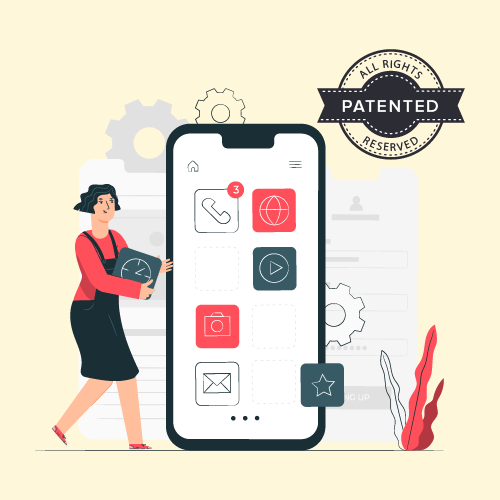A Comprehensive Guide on How to Patent a Mobile Application
A good idea is like finding a pearl amid the ocean – hard to come by but worth all effort.
This is more than appropriate when it comes to mobile applications. As the market is more competitive than ever, you need to have a disruptive app, potentially attracting more and more customers.
Now, it is natural to feel paranoid, and rightfully so, that someone else might claim that application by creating a similar one.
Is there something that can be done to avoid a miserable fate like this? Of course.
More often than not, people ask this question- “Can you patent an app concept”, to which the answer is yes, you can patent an app idea.
Having your mobile application patented even before you officially disclose it in the market and to potential investors is something that can protect your project from being duplicated.
Let us now delve into the mobile app patent process in detail.
Steps to Patent a Mobile App
In this section, we will cover one of the most asked questions by newbies of mobile app development – “how to patent an app?”.
1. Find and enlist with a patent attorney
In order to present a well-formed high-end patent and to increase the chances of your patent application getting selected, you must consult with and hire a software patent attorney, given they have relevant years of experience.
Since it is a legal process and might include litigation, it is best to hire a professional than to try doing it by yourself. It is not advisable to go with the first attorney you come across. Do your research and look for the best under your budget.
2. Mobile app invention disclosure
“Having an idea is just work half done.”
To continue this quote, one must bring the idea into actuality (at least to some extent) to confirm its feasibility, something that is highly prominent as an eligibility criterion.
Since the court needs tangible proof of your invention to issue a patent against your application, you must make sure to document the whole development process. Also, you can create a prototype of your application to breakdown its flow.
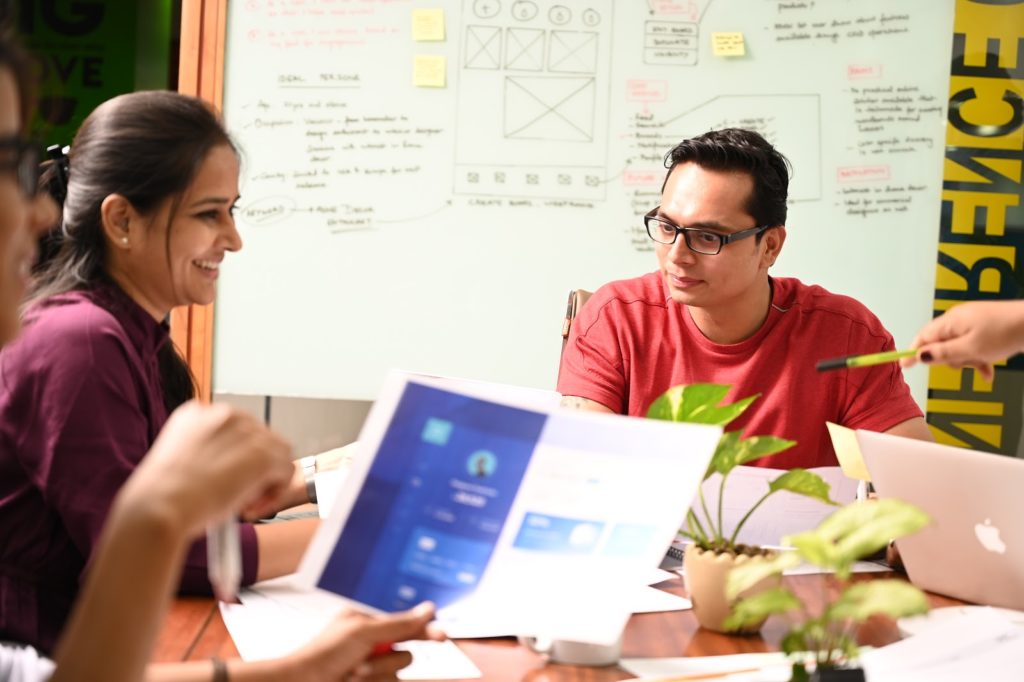
This will incredibly help your attorney to figure out the flowchart of your application since it is not the code but the functionality and processes of the app that gets patented.
This is great for figuring out the various implications of your application in different industries and gives you a new direction to think of what other elements in your mobile app are eligible for patenting.
{Also read: Why Does Your Business Need A Mobile Application for Growth?}
3. Practice patent search
Though you have done your homework, it is always advised to hire patent attorneys that conduct a worldwide search for applications similar to yours or have similar functionalities or flows, to avoid any unanticipated infringement from other companies.
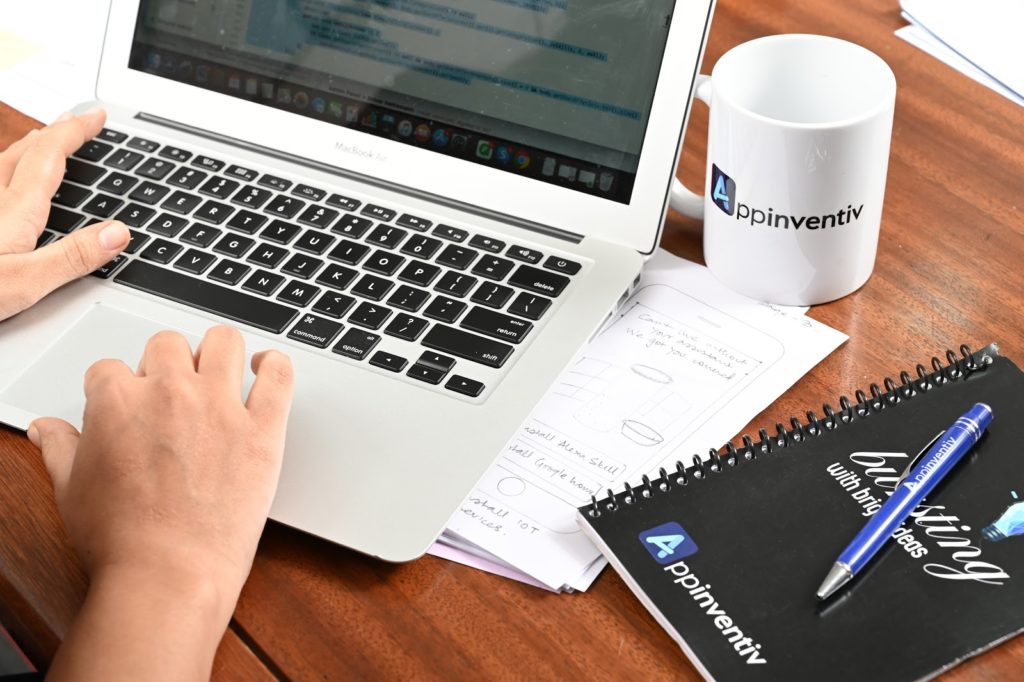
After all, it is better to spend a few bucks and make sure your patent has the most chances of getting sanctioned than to start from square one – all over again. You can do your research from the USPTO website.
4. File a provisional or non-provisional patent application
There are two types of patent applications that you can use as your patent application for your mobile app – provisional and non-provisional patent applications.
Provisional Application: It is one of the most common app patent applications. Under the provisional application, you will be allowed to file without a formal patent declaration, claim, or even information disclosure statement. Here are some benefits that this application type offers:
- It grants 12 months to develop the MVP
- Allows usage of term ‘patent pending’ on the app
- Less expensive to prepare compared to non-provisional applications.
Non-provisional Application: It can be filed without any claims made on the application made in the convention country or without any app reference which is already in the process in office. It is necessary that it must be accompanied with a complete claim and specifications.
It should contain a written description of the invention and a claim which legally defines the invention.
In order to choose one, as you must, you need to ask two questions –
- How fast do you want your patent granted?
- How long do you want to delay patent examination costs?
If your requirements point to the first question, then non-provisional is best suited for you. However, if otherwise is the case, then definitely provisional patent application, as it is never examined, as opposed to non-provisional. Here is an illustration to clear the picture in your mind –
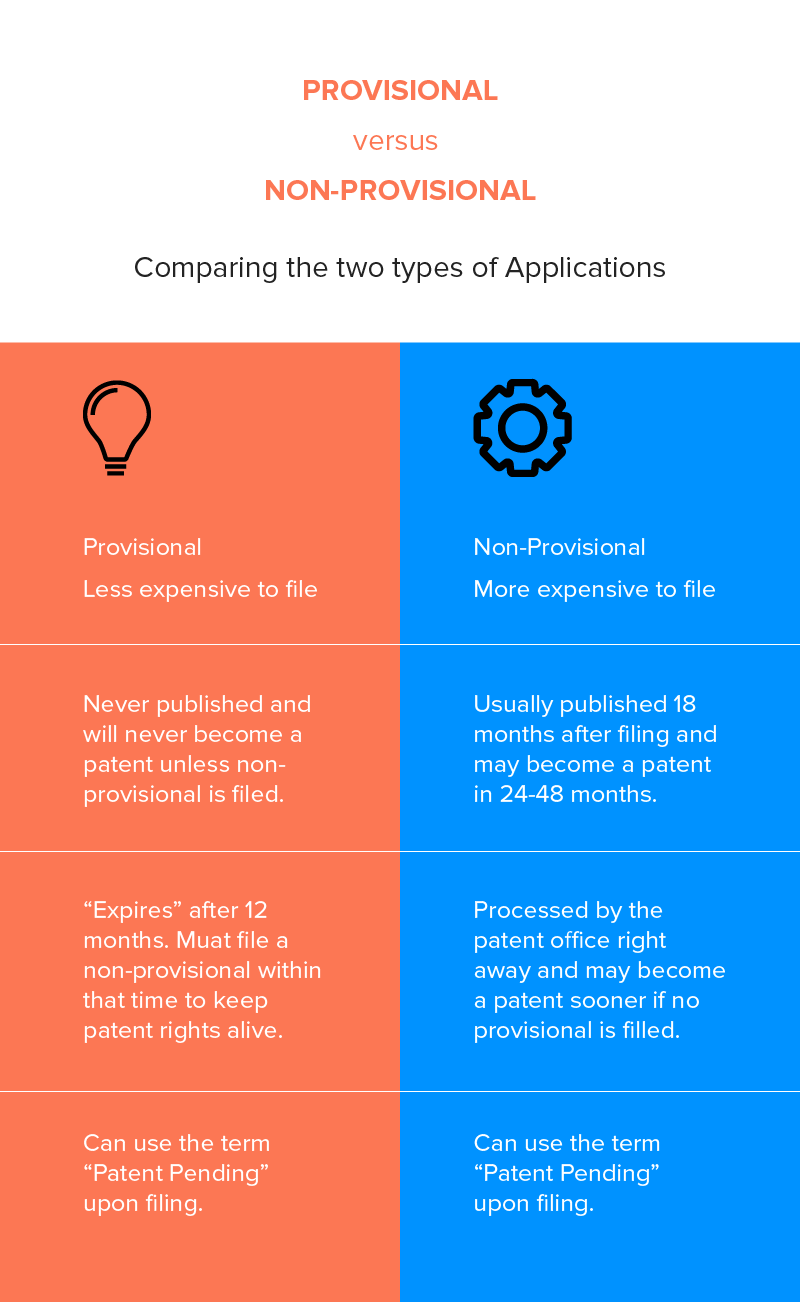
5. Submit your application
This is the final step to patent an idea. Once you have successfully performed all the above steps and have prepared a patent application, you are required to file it with the USPTO. Though this is a tedious process involving a lot of paperwork, you must see it through. Some of the important documents that you may require during the process are –
- Oath/Declaration
- Specification
- Entity Status Form
- Information Disclosure Statement
- Application Data Sheet (ADS)
- Claims
- (optional) Patent Cooperation Treaty (for International Filings)
- Drawings
- (optional) Application to Make Special
- Fee Sheet
- Cover Sheet
Now that we have dealt with the steps to patent an idea, let’s move to the requirements for patenting an app.
What are the Requirements for Patenting a Mobile App?
The three prominent criteria, on the basis of which your application will be reviewed, are generally the same in all the countries. These are the same criteria that would answer how to patent an app.
- This is the first criterion that you should tick off on the list. You cannot just patent an app idea. So, when filing a patent for an app, you have to mention all the important details and documentation of your project, from its code to the flow and functioning of the application, in favor of the fact that it is practical and useful.
For instance, let’s take the case of Alice Corp. v. CLS Bank International. In 2014, the supreme court initiated a two-step analysis.
The first step was to ensure whether the patent claim contained an abstract idea like a method of computation, algorithm, or another general principle. If it had, the procedure would move to the next step. If otherwise, the claim was considered potentially patentable, subject to the other two criteria.
In the second step, the court had to find out whether the patent claim added “something extra” to the abstract idea than what already exists. And might be considered an “inventive concept”. If it is negative, the idea would be deemed invalid.
- The second criterion of how to get a patent for an app is to know whether the invention (application as you will) is novel (as in new) or not. It means the application should have something that is substantially unique and different. In the words of Angelo Firenze –
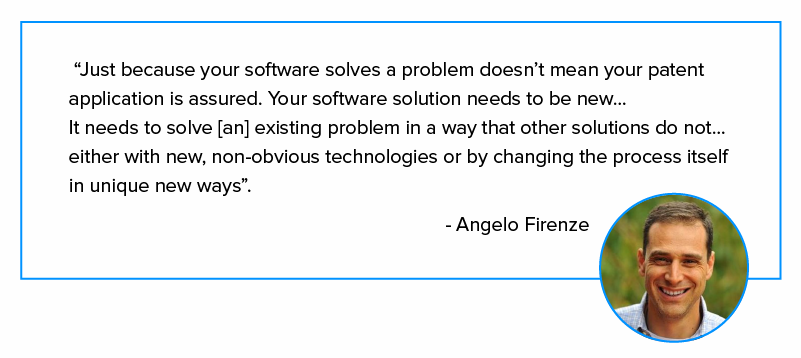
So, you need to make sure that your idea has not been patented before by anyone, lest your request for a patent would be rejected and you might be subjected to infringement. So, do your research. You can refer to the USPTO website or Google patents for inquiring purposes.
- The third criterion, and rather the difficult one, is that the mobile app should be non-obvious. Meaning, your project will not get sanctioned if it is just the integration or amalgamation of, but slightly modified, pre-existing technologies without possessing any unique trait or functionality.
Cost of Patenting a Mobile App
To answer the question of “How much does it cost to patent a mobile app?” we would say that it varies from types of the patent application you apply. You can refer to the USPTO listing to know more about specific costs, including every fee. More so, here are a few basic charges that you are required to pay while filing for app patent application:
- Elementary filing fee: $70-280+
- Patent search fee: $150-600
- Patent Examination fee: $180-700
- 3.5-year maintenance fee: $400-1600 (involves keeping a granted patent valid)
- 7.5-year maintenance fee: $900-3600
- 11.5-year maintenance fee: $1850-7000+
For the sake of mentioning an amount, the app patent cost via provisional patent application can amount anywhere between $2000 to $5000, whereas, for a non-provisional patent, it ranges from $10,000 to $15,000.
{Also Read: How much does it cost to make an app?}
How Much Time Does it Take to Patent a Mobile App?
Now that we have delved into the app patent cost and how to get a patent for an app, it is time to look into the time it would take to complete the entire process.
More often than not, applications get rejected and resubmissions are done over and over again. This back and forth process can last up to 4 to 6 years, based on the circumstances. In fact, it took 6 years for Mark Zuckerberg to get a patent for Facebook which was granted in 2012.
Why Patenting is Not for Every App Owner
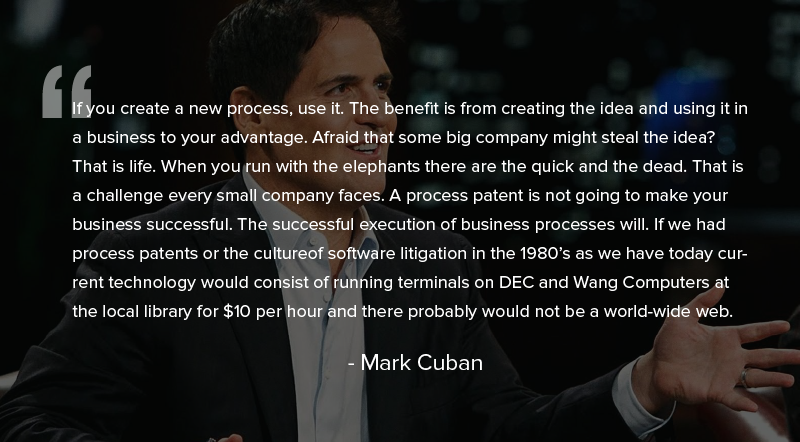
While patenting is made to seem extremely necessary, it is not for every application. Let us highlight some of the issues that you should prepare for when thinking of taking the mobile app patent route.
1. Patents tend to block crucial resources
Startups must be aware of the blocking effects that patents carry on the personal and company resources. These includes:
- Cost – the price of filing patents averages $30,000 in 3 to 5 years range. This added to the legal costs can cripple the startups financially, bringing it under the red zone in the Profit and Loss statements.
- Time – the process of obtaining a patent takes up a lot of time which often ranges from several months to even years. Allocating this bandwidth calls for a considerable time and energy away from the app idea execution.
2. The protection is not assured
The patent violation instances are very specific. Meaning, even the most stringent agreement might not be able to provide the protection you might seek at the time of breach. A number of brands face issues with rip-offs that make slight variations in the app to make it seemingly new – a patent will be little to no help in those cases.
3. Companies tend to pivot their original ideas to perfection
It is very natural for a startup to change their goal and ideas. The problem that emerges is that patents only tend to protect the initial level inventions and not the following iterations. This means, startups would have to refile for patents every time they pivot or simply update their application.
{Bonus read: How to successfully run a startup in the mobile app industry?}
The Alternatives to App Patents
1. Copyright
Mobile app copyright or patent is an age old debate. Like Patent, Copyright is also a type of IPRs but a little different though. It is a collection of rights issues to the inventor or author of any work i.e., literary, artistic, educational, musical, or the computer programs and allowing them to publish or reproduce their work, make derivatives, etc., irrespective of whether it is published or unpublished.
It protects the expression of ideas and not the idea itself. So in our case, you can copyright your app logo and not the app itself, as it does not cover facts, ideas, systems, or methods of operation.
2. Trademark
Patents prohibit others from making or selling the protected invention, whereas a trademark protects words, phrases, symbols, logos, or other devices that are a source to identify the goods or services of the originator, preventing other competitors from using them. So, a trademark can be issued for the logo of your application to stop your competitors from copying it and creating confusion among the users.
3. NDA (Non-Disclosure Agreements)
The NDA is a document which is signed by the entities you work with on your project, generally between you and your mobile app development company. It legally binds them to keep your app idea and technicalities confidential. This, in turn, protects the idea from being used by outsiders.
What Do Appinventiv Recommends?
In our digital experience, we have overlooked the development and deployment of over 500 digital products but patenting helped with zero launches.
It is true that utility patents can help in some cases, but until and unless you have come up with an entirely new way of doing things or have come up with a new usage of device it makes zero sense to block or drain your resources in that direction.
The tiresome process of getting a patent doesn’t just end up becoming a roadblock in the product-market fit but also slows down the agile development process.
FAQs
Q. Do you have to patent an app?
- It totally depends on your needs. But it is advisable to patent your app idea to safeguard your app against copying, unconsented usage, and more.
Q. What are the requirements to qualify for a patent?
- The three key points that qualify your application for patent are:
- It has to be an invention
- App idea must be unique and new
- It must be qualified as unusual
Q. How much time does it take to get the app idea patent?
- Generally, it takes 1-3 years to get the app idea patent. The patent application starts with the examination process and is broken down into different factors, such as specification, claims, abstract, and drawings.
Q. How much does it cost to patent an app idea?
- The estimated cost for patenting a mobile app can cost you between $2,000 to $15,000.
Q. How to know if your app idea is already patented or not?
- You can check this by easily logging into the USPTO website and searching appropriate keywords for all patents filed.
Final Note
To conclude, yes, you can patent mobile applications (not just an idea, there should be tangible proof of the project). It also depends on your needs (as discussed above in the article) whether or rather when you should think of patenting your mobile application. In any case, app patent protection for your intellectual property is adamant as it protects your app against copying, unconsented usage, and more, for as long as 20 years.

strategies your digital product..
